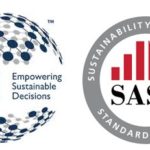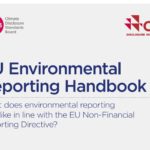Boards are failing to disclose to financial investors how environmental and social issues pose strategic
risks and opportunities for their businesses, according to an international review of corporate
sustainability reports by SustainAbility, the United Nations Environment Programme and Standard &
Poors. Risk & Opportunity: Best Practice in Non-Financial Reporting finds that only three reports of
the Top 50 assess the balance sheet implications of key environmental and social risks, despite this
information being increasingly important to analysts, investors, lenders, insurers and re-insurers.
The survey is SustainAbility and UNEPs sixth international review of corporate environmental and sustainability reports. But the 2004 survey is the first in partnership with Standard & Poors and the first to explore the link between credit ratings and the quality of companies governance and disclosure of non-financial risks. Over 350 reports were submitted and 50 were selected by an international independent expert committee for a full analysis.
The top three overall are Co-operative Financial Services (UK), Novo Nordisk (Denmark) and BP (UK). Over half of the Top 50 reports are new to the survey and overall there has been a significant rise in sustainability reporting quality since 2002.
Corporate governance is the hottest topic says SustainAbility Chairman John Elkington, but recent scandals have meant most boards are focused on financial integrity issues to the detriment of the bigger picture of non-financial risks and opportunities. The good news is that the overall quality of nonfinancial reporting has improved dramatically since our first benchmark survey, in 1994. Now the challenge is to ensure leading companies integrate their financial and non-financial accounting and reporting in ways that help analysts and rating agencies do their job properly.
Most current attempts are resulting in Frankensteins Monsters, stitched together from ill-marched parts, but 2005 will see leadership companies setting new standards. The early sustainability reporting pioneers are breaking new records and are being followed by growing numbers of companies from all over the world, said Monique Barbut, Director of UNEPs Division of Technology, Industry and Economics. It is striking that 47 out of the 50 top reporters are users of the Global Reporting Initiative (GRI) Guidelines. Without doubt, sustainability reporting is
moving mainstream, she said. It is now critical that financial reporting and sustainable reporting become accepted as part of an integrated package.



